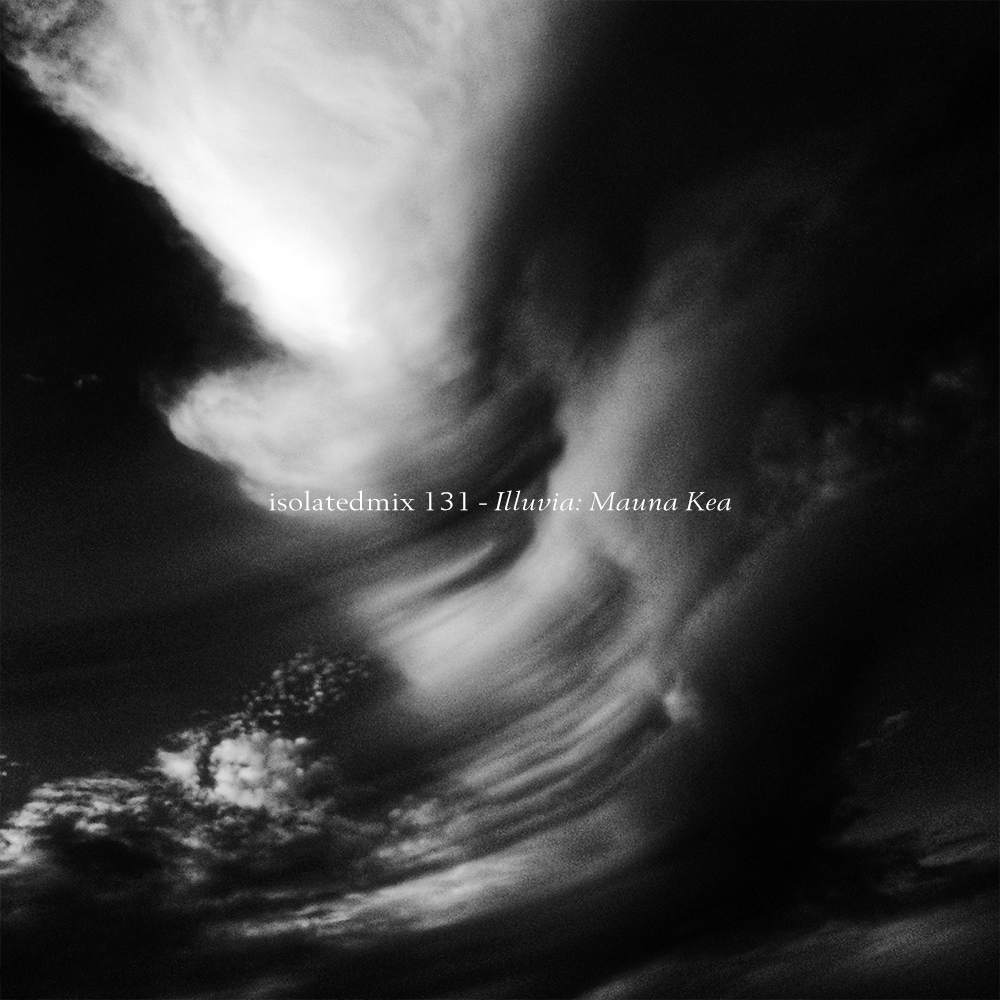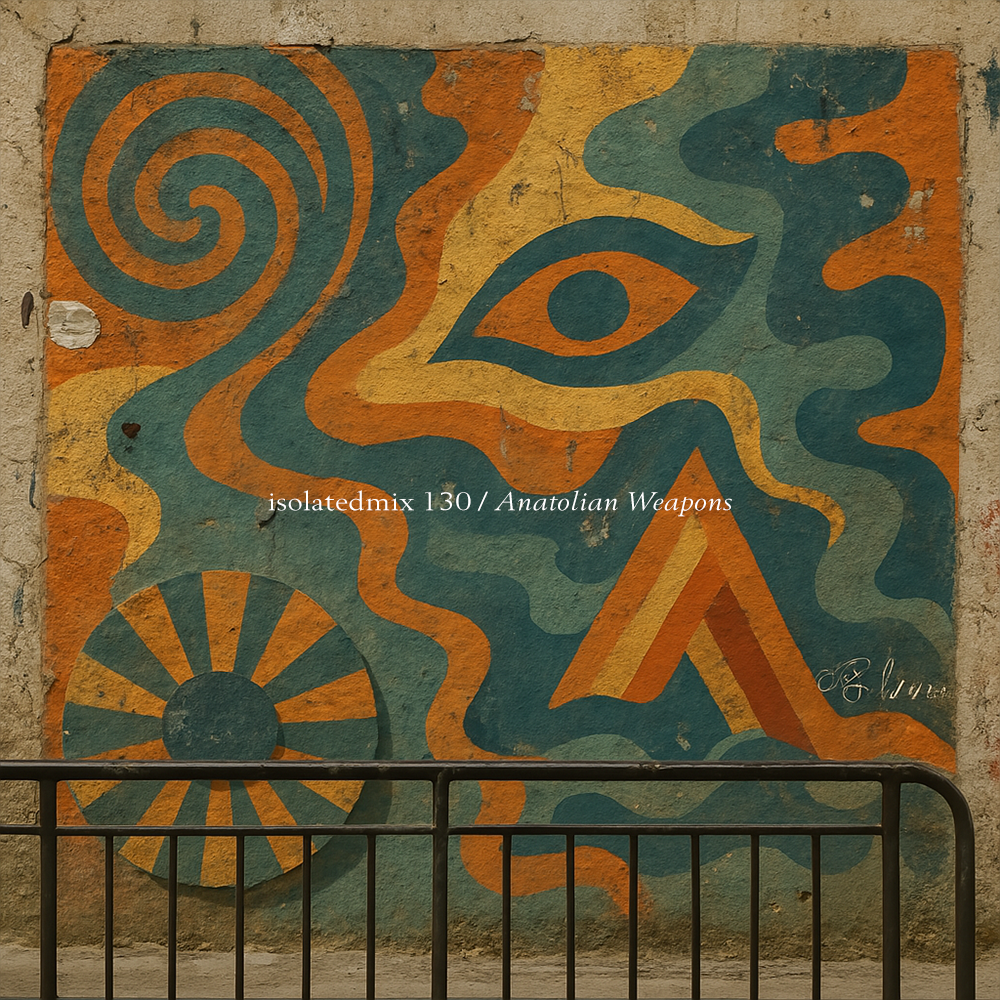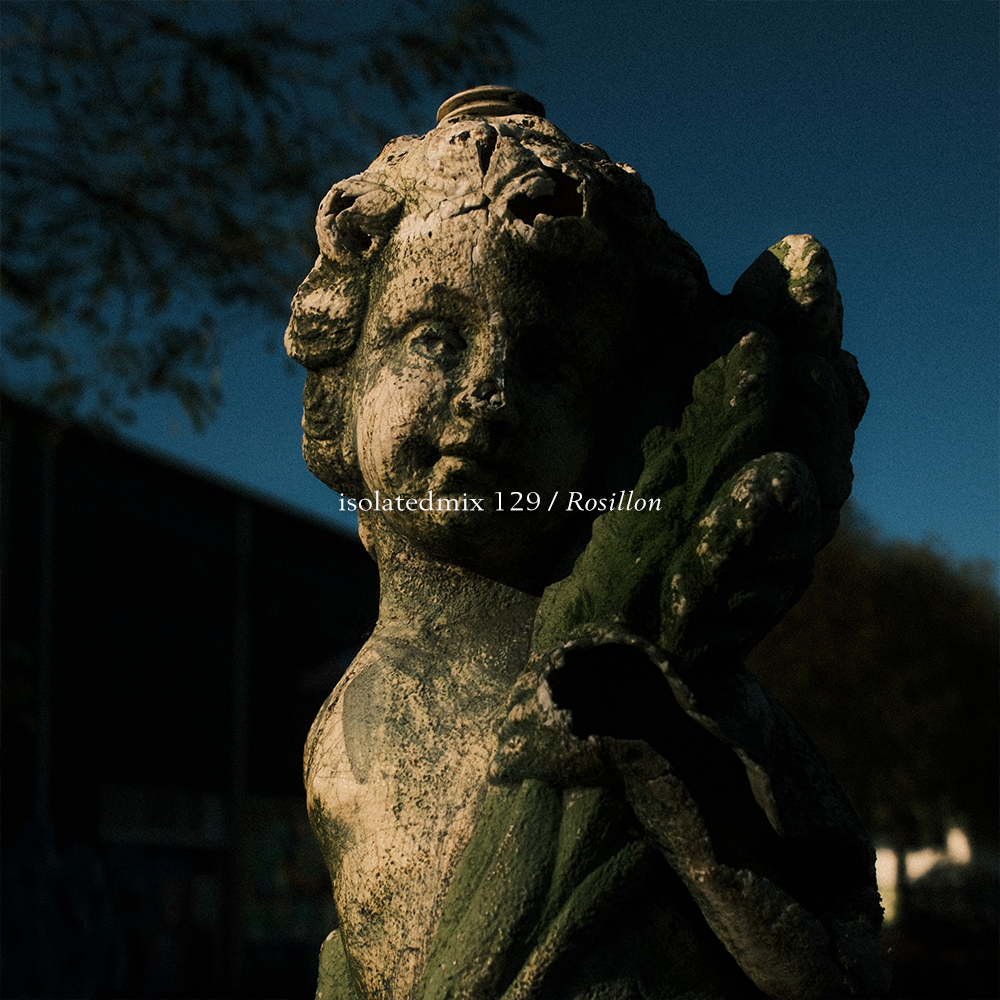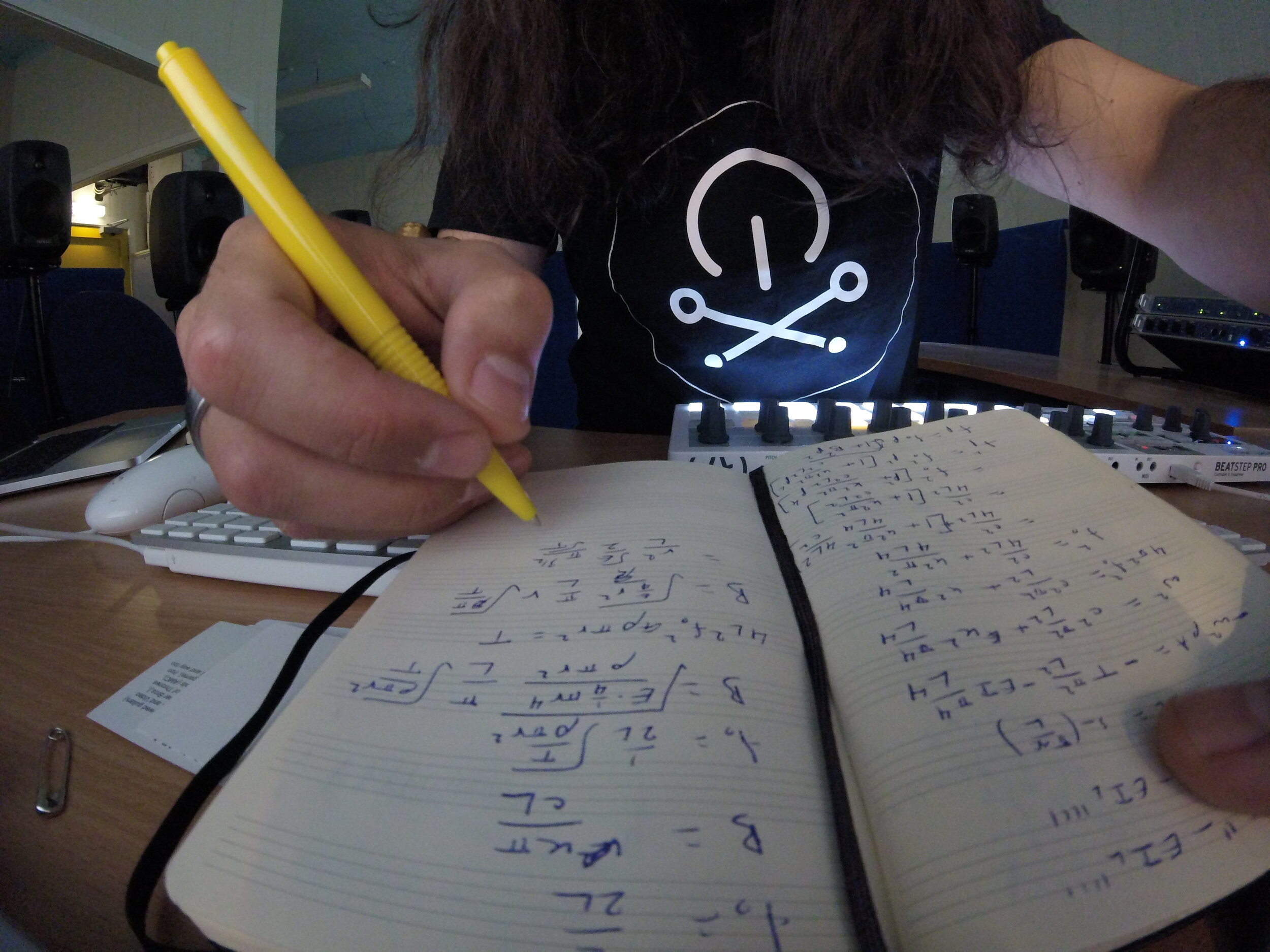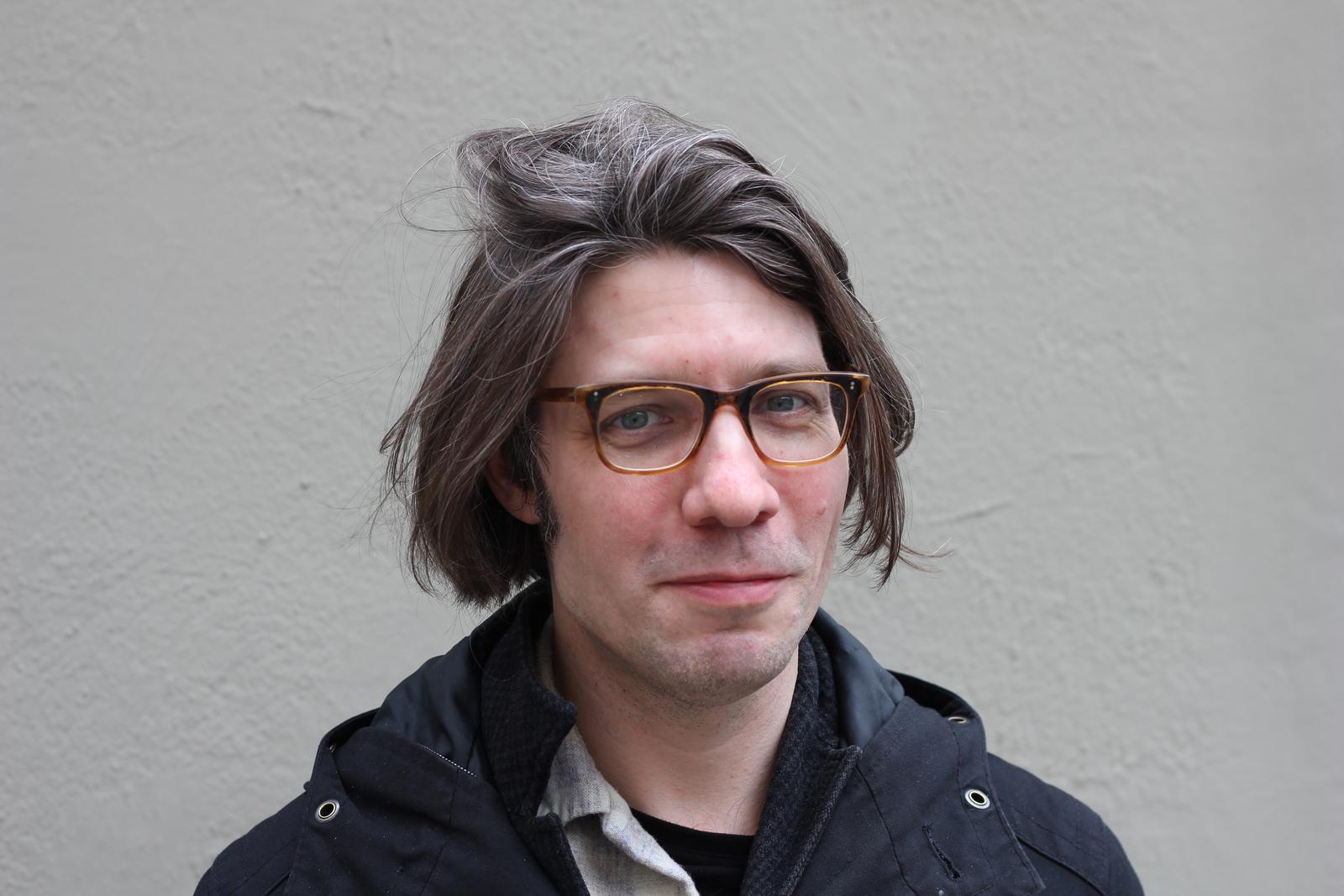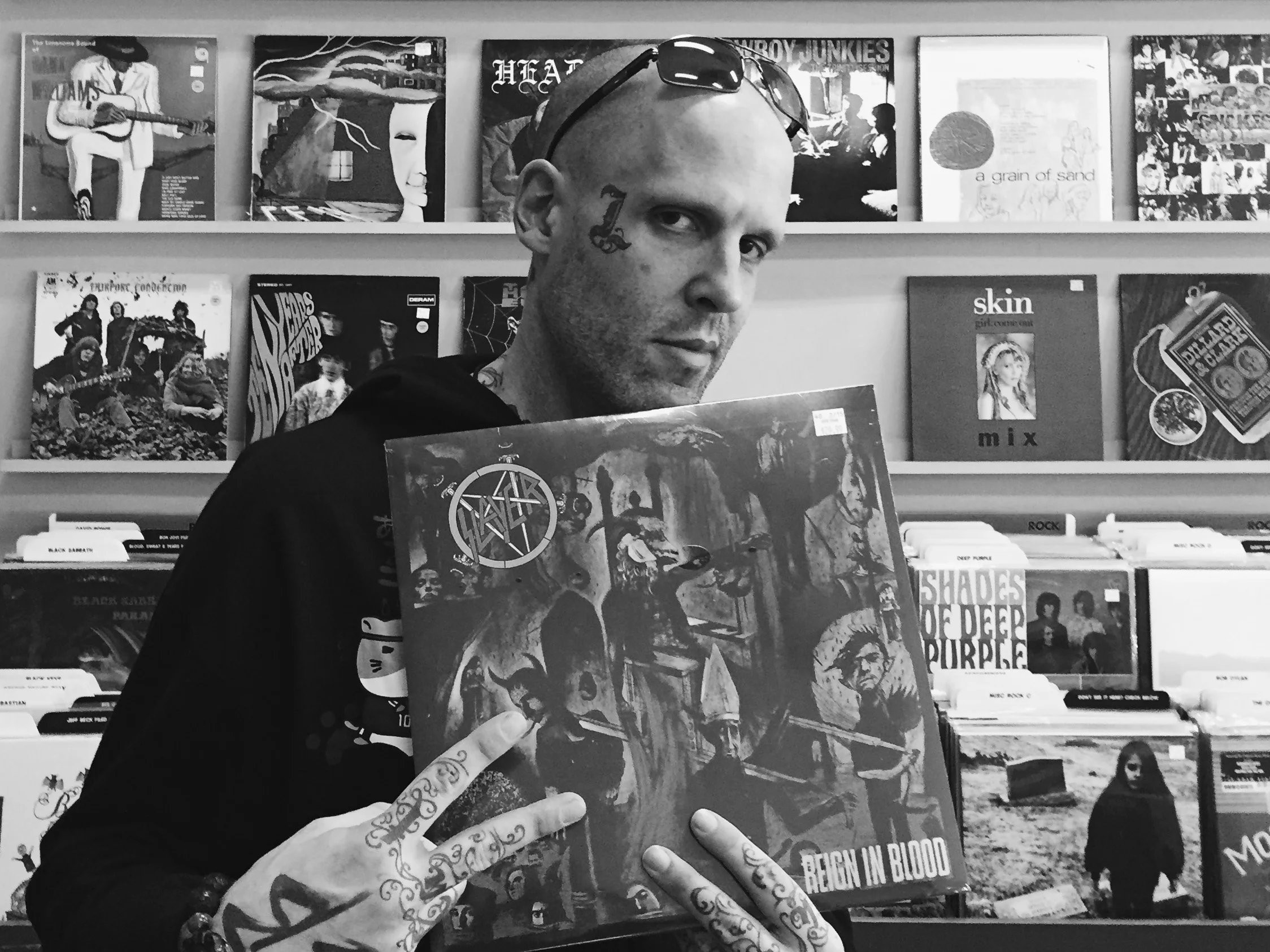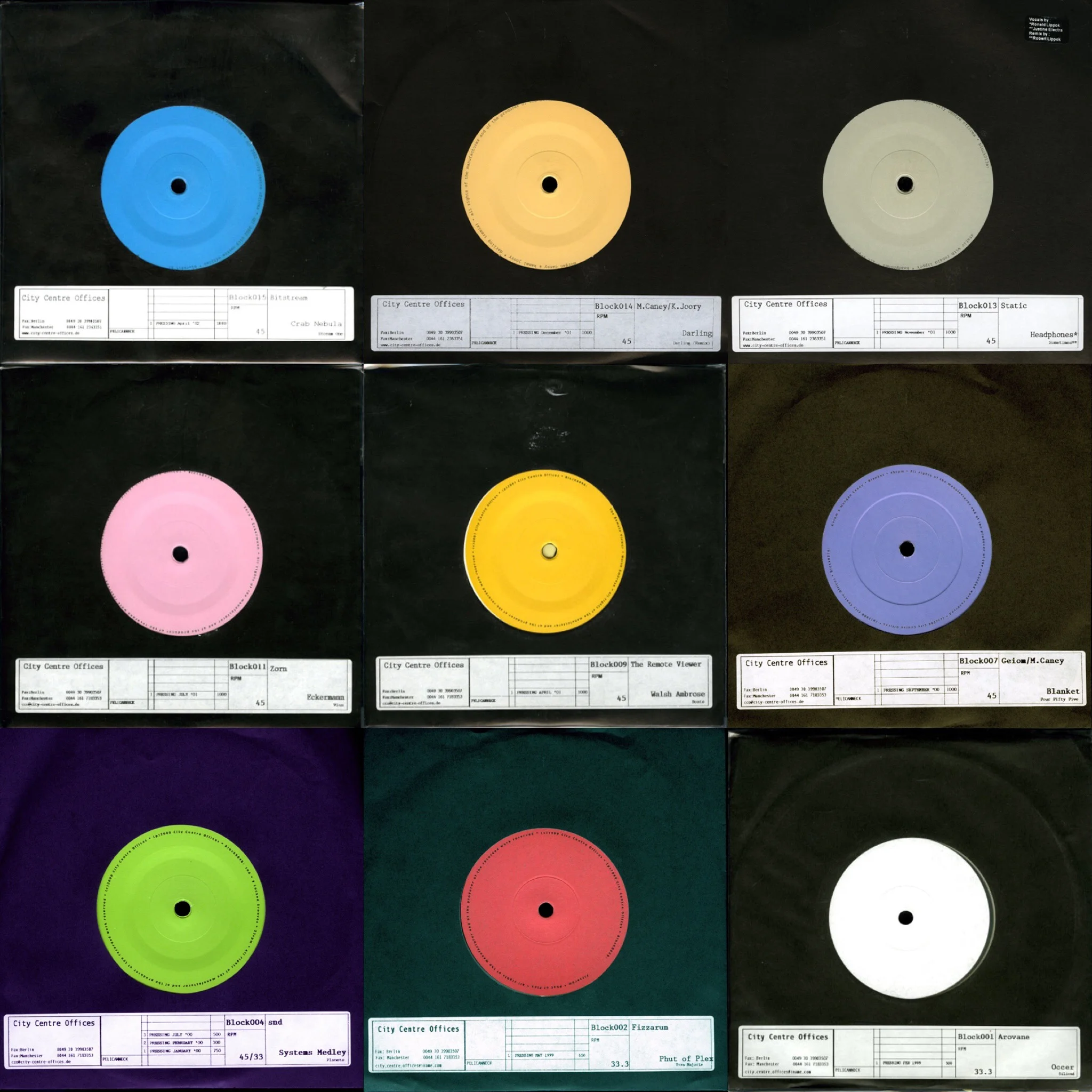Our first isolatedmix of the new year arrives intently for this moment in time, as Chris SSG captures a tapestry of ambient across an extended ~2hrs, to welcome in the new year.
As the MNML SSGS co-founder, Chris SSG is likely no stranger to those who have been in the online periphery (or legacy should I say) of ambient and techno forums over the past 15+ years. Coincidentally the MNML SSGS blog came to an end, ten years ago which makes this mix strangely appropriate to be featured here now on (what I think might be one of the last holdouts in the world of blogging!) I found many brilliant mixes through its associated mix series (Donato Dozzy, cio d'or, Peter Van Hoesen, and the very first one in the series remaining on high rotation, from bvdub) to name just a few.
But without dwelling on the past too much, (or how much I miss the days of passionate music bloggers linking up the best mixes of the decade on MP3 links) this background is imperative to the Chris SSG story.
As a curator, Chris’ mixes come from a highly considered approach that stems from years of experience DJing and exposing the best talent and musicians. With a passion for the art of the mix, and many overlaps between us in taste and journey so far, Chris asked to go back and forth for our usual introduction/Q&A, and I thoroughly enjoyed the process as a result.
Continue below for our ponderings on the art of ambient mixes in general, online events, and some background info from Chris on what he is up to, and the mix he prepared especially, to bring in the new year.
~
ASIP: You decided to prepare an isolatedmix for us at a very specific time and moment, can you elaborate on this decision?
Chris SSG: 2021 was a strange year in terms of my relationship with music. It was the least I’ve played since I started to DJ. This was obviously connected to pandemic-related disruptions, but I also have used that time to think about the meaning and purpose of DJing and parties. And, for me at least, I do feel that meaning matters, there are deeper ideas and values connected to what we are doing, and some practices contribute to these more than others. I am still working through all of this, but in the context of recording podcasts, connecting them to certain moments or ideas is a way of making them more than ‘just another mix’. With that in mind, I have been wanting to contribute to the ASIP series for a long time and doing it to mark the new year really appealed to me. While I haven’t been playing, I have been continuing to look for new music, so this mix became an opportunity for me to compile and put some of it together.
I know you mark the end of years with label mixes, and this time you had Todos prepare the label mix for you. Can you talk a bit about why do these end-of-year label mixes, and the significance of asking Todos to do it?
ASIP: ASIP began as a blog with mixes being a big focus (the isolatedmix series for example) so the ‘art of the mix’ has always been a passion of mine; in creating, curating and hosting them. I started putting the end of year label compilations together 3 years ago as the label hit a good cadence and could warrant a ‘sampler’ so to speak, to help introduce people to the varied releases, but I don’t really see much value in just rehashing some chosen tracks, given many ASIP followers probably already own the tracks as full albums. So I wanted to present another angle to these compilations that could offer something new.
Completing a mix with predefined tracks/albums is tough, but I believe in many ways liberating. As you mentioned above, a concept can help make it “more than just a mix”. I often like to enforce my own rules or concepts to help me become even more focused and creative in approach (eg the Portals mixes). I listen to so much music that it can become overwhelming to create mixes with a blank canvas as a starting point.
I discovered todos at the very beginning of the ASIP days and his Kilchurn mixes became some of my favorites of all time, due to his unique style and nostalgic connection with the early 00’s electronic music / Global Underground days. We since became good friends and it was a no-brainer to give him the task of tackling the 2021 comp. I honestly can’t see how many others could’ve achieved what he did with the tracks - he exceeded my expectations. I hope to do the same next year with a DJ, assuming the ASIP 2022 catalog can warrant it and someone is up to the challenge…
How do you tackle your mixes? What’s your process in a situation like you described above?
Chris SSG: I always record my mixes live in one-take and don’t edit them. Sometimes the first attempt doesn’t come together right, and it takes a few attempts, that is what happened for this mix. In terms of preparation, sometimes I am using what I’ve already organised for playing out, and other times, I will prepare a playlist if I have a more specific aim with the mix. When DJing ambient, I separate music out into folders with different energies or functions and move through these different folders as the set develops. This gives me a balance of freedom and structure.
When playing, what I think about is the overall progression of the set, how it hangs together. As I am selecting individual tracks I am focusing on where I want to go, what my aim is. For instance, sometimes I will deliberately have sections that are a bit more challenging or difficult to grasp hold of and then come out of that with something easy, comforting, warm. There is a Japanese expression for this: ‘ame to muchi’, candy and whip. When DJing, you want to be giving candy, but sometimes that means you first need the whip, it makes the candy taste better… That is just one technique, but I do really like creating contrasts. And through doing all of this, ultimately what I am aiming for when playing is to create something cohesive and resonant, and when it works right, to evoke memories and emotions.
I have said this before, but I think there can be a tendency to underestimate the challenge of putting together a compelling ambient mix. It requires more than just removing the beats. From your experience both DJing and curating the mix series, how have you come to think about it? What do you think is distinctive or important about playing ambient?
ASIP: I agree, it’s really hard to do right and I am definitely still learning. I think the most important aspect that I try to hit, is storytelling. And by that, I mean constructing different chapters, moods, or emotions that keep it interesting and flowing well. Or in some cases, showing different or new angles of a concept or style.
You could say, “well that’s the same for any genre mix” but I’d argue ambient music has many more tools to create a narrative (and therefore many more ways to f$#k up). Anger, power, love, nostalgia, comfort, euphoria, or just straight-up noise and sonic resonance, as examples, can all come into play within one ambient mix, with the added element of how they interact with each other and the space you’re creating. So the art of knowing what and when is heightened and similarly even more delicate. Like you said before, toying with them is also an interesting approach too. There are (typically) no beats to hide behind, or vocals to distract the listener so it’s all laid bare in an ambient mix. Ambient DJs are basically playing with their pants ready to be pulled down at any moment given the exposed and sensitive nature of the music :-0
I think the additional tricky part of the ‘ambient mix’ is also the subjectivity of where and how it should be listened to. Ultimately if the DJ has this idea of taking someone on an emotional rollercoaster and the listener is playing the mix in the kitchen on an Alexa whilst they make dinner, it's obviously not going to achieve that goal. This is why, especially for mixes meant for online, I try to give clear concepts or introductions. Never “oh here’s a new mix I hope you like it”. Without context, it becomes a bit more ego-driven and assumes people will love it for the fact you are behind it (which could also happen) , but there are many more elements to come into play for a mix to really hit home.
Similarly, if you’re sitting with friends relaxing to an ambient mix in the classic ‘background’ sense, then I likely don’t care about the weird concept or narrative you had intended. Hearing Eno and Enya (!) in any order will likely do just the trick, so while it takes a lot to perfect a mix, it’s just as important not to get too hung up on the idea of creating some unattainable art form or concept at the end of the day. I say do it for yourself and if others enjoy it, that’s a bonus. Ambient music is very personal anyway - at least it is for me.
Chris SSG: Reading and thinking about your response, I wonder how much of what you describe is distinctive to ambient, and how much is more a reflection of what you (and myself, and our readers hopefully) are interested in. For example, I am sure many dancefloor DJs would regard their music as having the possibility for emotional range and complexity, for developing narrative, and so on. Certainly, in some ways, music with beats is easier to transport, but place and context still matter significantly.
Saying all of that, I think the keyword you use is ‘delicate’, this hits on something important about ambient music. ‘Delicate’ can describe the music and the spaces needed, both physical and mental. Ambient can have a higher cost of entry, the listener might need to be more open or to pay more attention for it to work, for something to happen. Without that engagement, then it is harder for there to be a connection, it easily falls away into background noise. I have experienced this: the setting might be wrong, the crowd might not be open, there just is not space for anything to happen. But… if you get that opening, a bit of connection, then there are some really amazing possibilities with this music. And that is what I am looking for, that chance, that possibility of finding someone willing to listen and engage. In terms of how and in what conditions people choose to listen to what I am doing, I don’t care, I just want them to give me that opportunity, then it is up to me because I have music, ideas, emotions, energies I want to share.
And this comes back to something else you raised - it is very personal for you. This is something really important. When I look at artists I admire, gravitate towards, and appreciate, I notice this feature is present. Their music is a clear manifestation and powerful expression of themselves, it is authentic, it is genuine. And this is actually hard to do as an artist because it means you need to put yourself out there, to be vulnerable, to take risks. This might not be the best route to success or fame or whatever, but for me, at least, I think this is what is necessary. Interestingly, I also see this being an area where younger and growing artists can struggle - it is difficult finding the way to best express yourself, to develop something that is distinctive to you as an artist.
The personal aspect is certainly clear in everything related to ASIP. It is obvious that it is something you attach meaning and value to, there is real care. People see it and appreciate it, and this is reflected in their being a group of people connected by and through ASIP. I was wondering if you can talk a bit about how you think about relationships, connections and community related to music. I feel like this is a very important piece of what we are talking about here, and it is something I feel is so central and important to why we do all of this.
ASIP: The community aspect of ASIP has primarily been built online, as despite a few low-key label shows over the years, I have never been situated in one place for too long to establish a decent ‘local’ community- it’s something I aspire to do one day- but it isn’t something you can force or speed up. It takes years and lots of effort, online or offline (oh, and then the Pandemic came along…)
If I had to try and summarise why community is important for ASIP and in many ways music in general, I think it comes down to trust.
I aspire for people to trust my curation of the label, and in return for that trust, I put everything into making sure the end product is the best I can offer for both the artist and listener. People spend a lot of money buying records, or paying $10 for an album when they could just as quickly jump over to stream it for free, and I don’t think I will ever take that for granted.
I have always been the face behind the label too (which is a double-edged sword in many ways) but it definitely helps with that trust. People email me by name with questions and I can’t tell you how many relationships have begun because of these random emails or interactions. Albums and friendships have been born. Gone are the days when you could hide behind telephone numbers (Fax numbers!) or office doors as a label, and I like that. Of course, there’s something to be said about an air of mystery with music, labels, and artists, but that’s not the course I am on, whether I like it or not. I asked people for money to Kickstart our very first vinyl release in 2013, so my hand has always been on show.
I think this comes full circle when you apply trust to the greater sense of community around ambient music and what you mentioned above. As a listener or event attendee, it’s crucial that you know the promoter, venue or artists involved, understand your investment in time and money, and is doing it for the right reasons - the experience. I relate this back to the Substrata Festival that Rafael Anton Irisarri used to run in Seattle. It was expensive to attend on the face of it, but you had full faith that the setup, venue, sound, acoustics, and curation of the festival would be spot-on every time. This is a rarity nowadays.
I’d be interested to know where you think community and events might be going in the future? With live streaming for example, becoming increasingly popular, the “experience” of the music is no doubt being diluted in many ways. But on the flip side, especially as I have experienced with 9128.live, I am also seeing the community aspect reborn again stronger, as people converge around similar interests and conversations in the most basic ways, which I feel has also been missing with physical, live events. I would go to so many ambient events and not meet a single person due to the way it’s set up, for example.
Chris SSG: It is encouraging your positive experience with 9128.live. I have participated in some of those live streams and it has been nice connecting and chatting with others. Things like this are important, but I do fear they are a bit more the exception than the rule. I also wonder whether something like the 9128 is building off ASIP and a network of people that predates the current iteration of the internet and social media. With the pandemic and people looking for options and things to do, there has been an over-saturation of streams, videos and mixes. If you want to support something now, what do you support? There is so much, it can feel rather overwhelming.
In terms of the future, I am not too worried about streaming events diluting the experience of music, ultimately it tends to be more of a poor substitute for being able to do things in person. We are a long way off being able to replicate the feeling of actually being at an event and experiencing it with others, I am sure all the streaming stuff will die down once the pandemic eases. For the most part, these feel like quick stopgaps while everyone waits to get back to what they were doing beforehand. Indeed, this is partly what I am worried about, from what I can tell, when we get out of this pandemic, I don’t think much will have been learned, and I am worried about many of the more troubling trends in the way electronic music exists and operates at the present moment will continue unabated.
I am concerned about how we can develop, maintain, and sustain a sense of community in the context of social media and an environment dominated by big platforms and big money. 9128.live is a great initiative, Buy Music Club is another one, and the new Nina platform built on Solana also looks very interesting; I hope to see more such initiatives.
After a very long break, I recently decided to start writing again and launched a substack called SSG Space, this is partly to share music and what I am doing, but also to sketch out some thoughts and to do so on my own terms outside of social media and the main platforms. I worry we all end up tending to operate in a closed system in which we are reinforcing and strengthening bad dynamics. I am not sure how we do it, but we need to find new ways and spaces for communicating, sharing, and engaging, the ones we have now are mostly bent and broken. My substack is hopefully a small contribution to this process.
ASIP: Lastly, can you tell us a bit about the mix you have prepared?
Chris SSG: The picture accompanying the mix was taken at Kenroku-en (兼六園), a famous garden in Kanazawa that dates back to the 1620s. I took it on a recent visit, when I arrived it was pitch black, except for the full moon in the sky. I walked around the quiet garden as the sun rose, night turning to day. Looking at the moss and the trees, the paths and the running water, I was overwhelmed by a sense of beauty, filled with awe. I certainly will never be able to achieve such perfection with my music, but what I aspire to is perhaps to generate a faint echo of those feelings. With that in mind, the mix is called ‘fuzzy edges and a scarlet core’.
The mix was recorded at my home in Tokyo, late December 2021. Thanks to Ryan / ASIP, as well as all of the artists and labels included in the mix, especially those who kindly sent promos of some of the tracks. I’ll be glad when I get a chance to play this music out, but for now, I hope you enjoy starting your year with it. Best wishes for 2022, may Fortuna be kind.
~
Listen on Soundcloud, Mixcloud, or the ASIP Podcast.
Tracklist:
01. ELpH - Glimpse
02. Alva Noto - Xerrox Île
03. Bandhagens Musikförening - Cirkelskifte (Oberheim Matrix 6R)
04. Nadia Struiwigh - Starring
05. KMRU - Neutral Points
06. Coil - Sara Dale's Sensual Massage 7
07. Air - Spiritual Invocation
08. Niagara - V
09. Imaginary Softwoods - The Hi-Lonesome Conifers
10. Bea Brennan - Losos 2 (Nog mix)
11. Li Yilei - Kou
12. Elysia Crampton - Dog Clouds (feat. Jeremy Rojas)
13. Bernard Parmegiani - Pop Secret
14. Agonis - Sunlight Filtering Through Skyscrapers
15. SKY H1 - Labyrinth
16. XOR Gate - Conic Sections
17. Felisha Ledesma - 2AM
18. Mika Vainio - Shells
19. Autechre - Metaz Form8
20. Voiski - Confinement 18 (Why Is Time Passing So Quickly These Days?)
21. SØS Gunver Ryberg - Velvet Dome Of Becoming
22. Steve Moore - The Prophet Speaks
23. Mike Nigro - Loose Time
24. Brett Naucke - Parallax
25. London Modular Alliance - Hive Mind (Sketch #1)
26. Vivian Koch - I Know You're Here
27. Merrin Karras - Crevasse
28. Hamatsuki - Adaptation is Inevitable
29. Jo Johnson - Beithe
30. Nueen - Moving II
31. Mucho Sueño - Relacional
32. Priori - Shkrub
33. Anthony Naples - I Don't Know If That's Just Dreaming
Chris SSG | Soundcloud | Twitter | Bandcamp Collection




